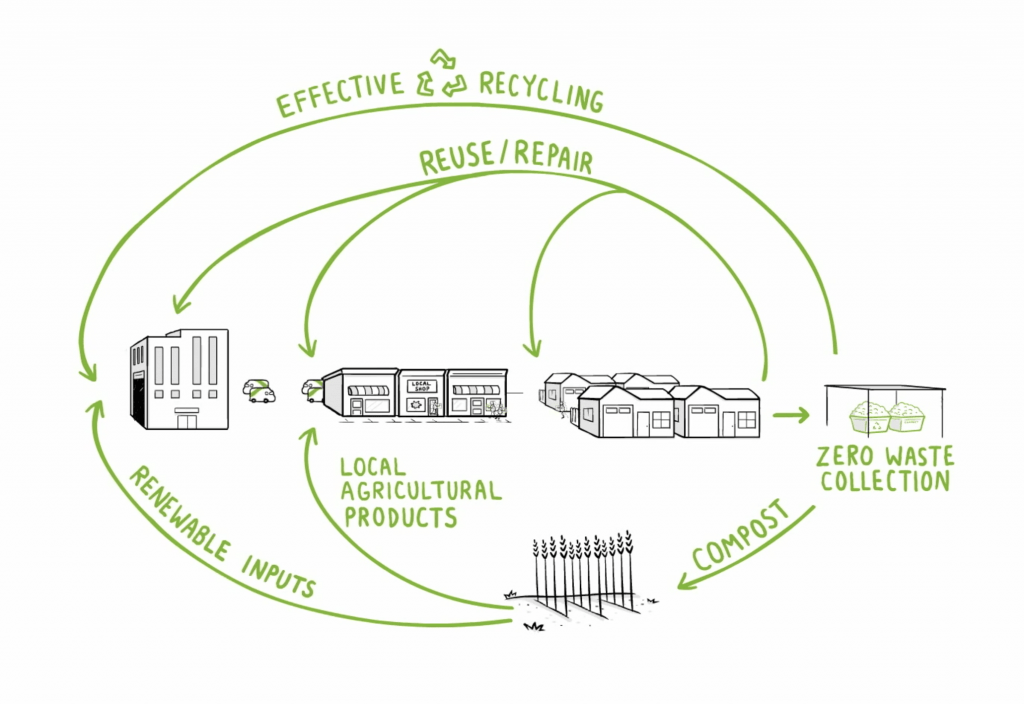What the government doesn’t want you to know about the real source of the plastic crisis? The new Discovery Channel documentary “The Story of Plastic” exposes both the fossil fuel industry as well as recycling as an unsustainable solution.
What the government doesn’t want you to know about the plastic crisis?
There is a gap in the coverage when it comes to the front end of the story. There is a tone of attention around the final stage of the plastic lifecycle when it actually becomes pollution. They are not telling the story of where the plastic comes from.
Zoë Carpenter, “The Story of Plastic”, Discovery Channel
Prevention doesn’t come after recycling. The government and the petrochemical industry wants us to believe in it. A lot of media coverage focuses on the clean up but we can’t rely on it as a solution.
Plastic is not driven by the demand for it but by the supply. Therefore, the petrochemical industry is ramping up fossil fuel production. This is the last thing we need as we attempt to manage our climate crisis. Meanwhile, the industry tries to convince us that it is all due to bad waste management.
It is only a distraction from the truth as we are not able to manage this amount of waste. By banning plastic imports China has left municipalities and waste companies desperately searching for alternatives. As we know, recycling is possible because of poverty. Companies started moving to Thailand, Indonesia and Vietnam but these countries don’t have the capacity to deal with it on such a big scale. As a result, we can observe increased plastic incineration around the world which is extremely bad for our health.

Fossil fuel industry, who is making the plastic and why?
- 99% of plastic is fossil fuels.
- The oil is processed into a different type of fuels as well as chemicals. Polymer pellets (a byproduct of gas extraction) is further processed into a plastic.
- Plastic was initially a waste product (the company could pay to get rid of it responsibly or turn it into a new product).
- The policy is to make people use more plastic to profit more.
- The petrochemical industry produces 400 million metric tons of plastic each year (more than half in the last 15 years, 91% of it has never been recycled)
- Most plastic is hard to recycle.
- The companies behind plastics are the same as those digging for oil and gas: Exxon, Chevron, Shell, Conoco Philipps, Dow Dupont.
- Plastic is extremely bad for the environment; as it disintegrates it produces greenhouse gasses.
- Petrochemical companies are committing 1.5 billion dollars to clean up while 194 billion will be invested in 325 new or expanded facilities between now and 2025 (in the US alone).

What happens to your plastic? Current statistics:
- 32% litter
- 40% landfill
- 14% incinerated
- 14% recycled but only 2% effectively recycled
Effectively recycled means that is made into something as useful as it was before. Most of it is down-cycled meaning it becomes less quality plastic. It can only be recycled once as it degrades during the process.

Plastic crisis prevention
How do we get out of the fossil fuel economy?
We need to make companies accountable for the lifecycle of their products. Companies are growing with no environmental responsibility. They need a plan for how their product will be reused, composted or effectively recycled. We all need to focus on reducing and reusing.

If you want to stop the plastic crisis fight to end fossil fuel subsidies. The least we can do is to protest for extended producer responsibility and against single-use plastic. This is a crisis that exhilarates as you are reading this article. There has to be a policy. Without legislation, we won’t be able to stop the problem. We can’t solve the plastic waste crisis just by dealing with it as a waste issue. Finally, we need to change our economy from a throwaway to zero-waste.
You can watch “The Story of Plastic” on Amazon, Apple TV and on Xfinity.
Also, check other posts related to environment.


